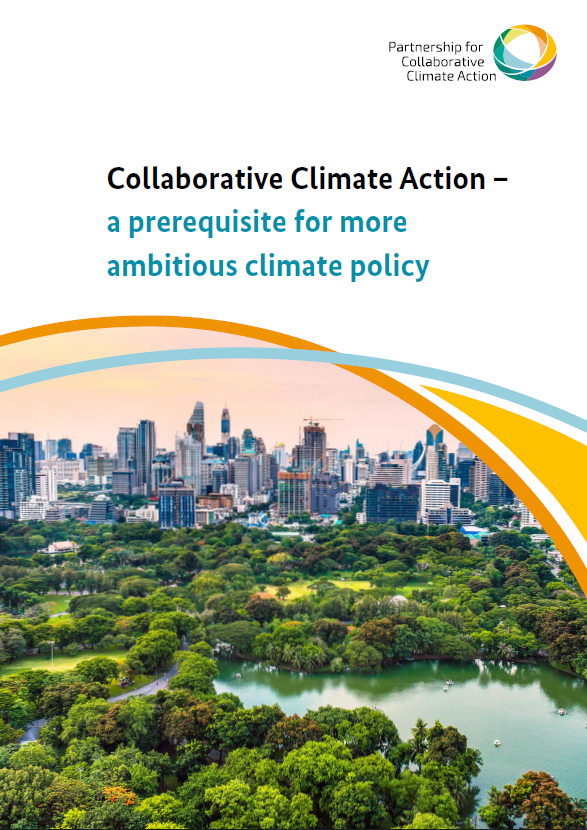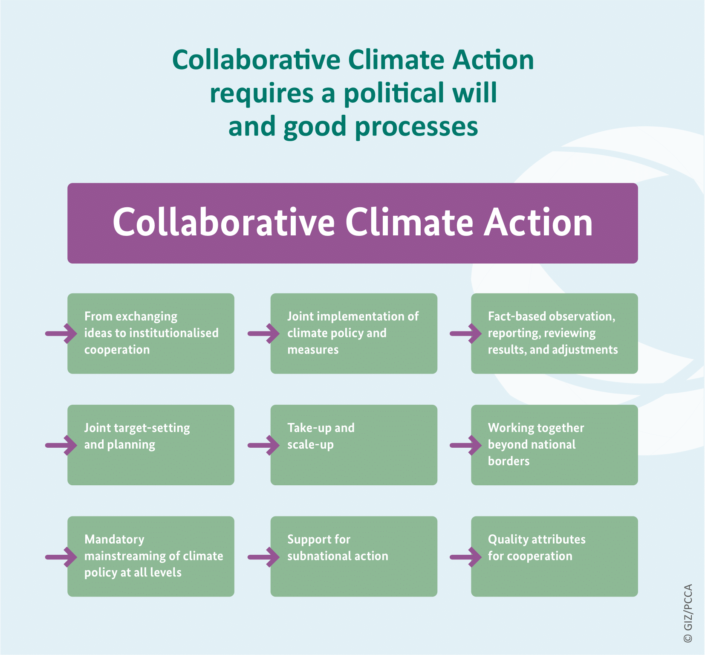Collaborative Climate Action – a Prerequisite for more Ambitious Climate Policy
“Collaborative Climate Action – a Prerequisite for more Ambitious Climate Policy”, published by the GIZ Projects “Climate Policy Meets Urban Development” and “Vertically integrated Climate Policies” in February 2021, revolves around the theory and practice of multi-level climate governance.
More ambitious and effective climate policy is urgently needed. Even with a complete implementation of the current Nationally Determined Contributions, global warming projections drastically surpass the target of limiting warming to 2 °C, and far exceeds the necessary 1.5 °C. With their agglomeration of people and economic activity, cities and regions (i.e. the subnational level) play an essential role in achieving sustainability goals, mitigating GHG emissions and adapting to climate change. Without cities and regions, national governments cannot achieve their internationally set climate goals, much less raise their ambitions.
The report therefore outlines the necessity for more ambitious and well-coordinated climate action across levels of government, introduced as collaborative climate action (CCA), and the important role that regions and cities play in attaining national and international climate goals. When all levels of government utilise their competences, tasks, budgets, experts, contacts and cooperation partners in a targeted and coordinated manner, they can achieve more together than each actor would alone. At the same time, joint action prevents the creation of contradictory incentives and can save significant resources, whether it be money, personnel or time. Collaborative climate action is introduced as a guiding principle for creating effective policy as well as possible policies to foster cooperation across government levels. Multi-level climate governance therefore contributes to consistency and coherence in climate policy, from the international to the local level.
“Collaborative Climate Action – a Prerequisite for more Ambitious Climate Policy” suggests instruments to foster cooperation between government levels and offers examples from practically implemented policies. The report is therefore a resource both for those interested in theoretical insights as well as for those seeking ideas for implementation.
Collaborative Climate Action
is politically intended, well-organised cooperation across different levels of government to achieve climate goals – ideally jointly defined and implemented. Effective and more ambitious implementation can only be achieved through collaboration.
Download figures from the report:
Online Appendices with additional information:





